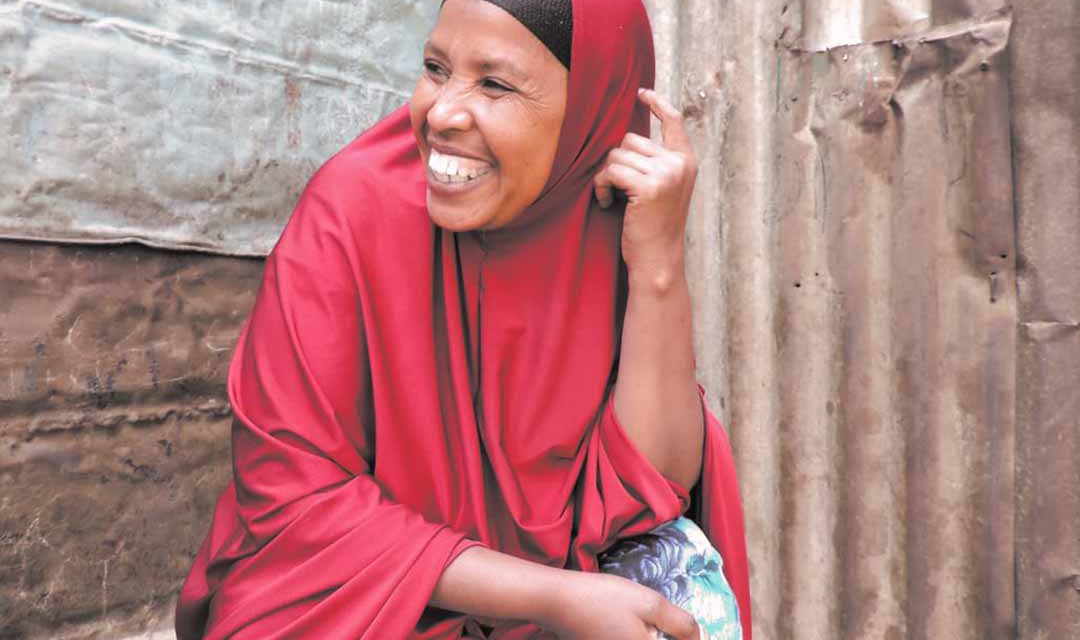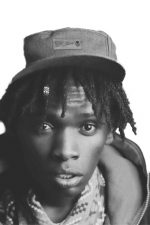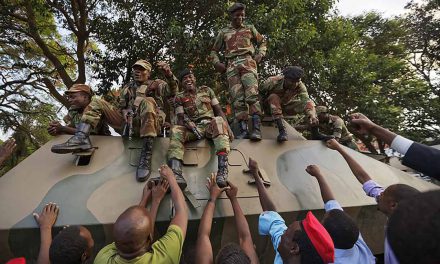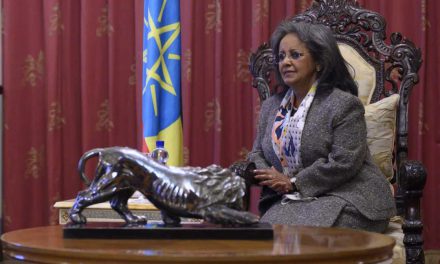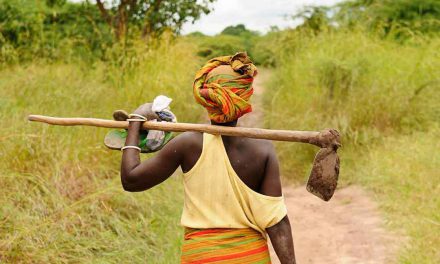Mama Rahma: profile of an African feminist
Child bride at 13 and a victim of female genital mutilation, Kenyan activist Rahma Wako liberated herself to become a powerful advocate of women’s rights
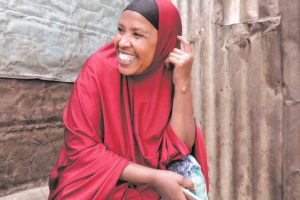
Mama Rahma Woko Photo: supplied
Despite holding up half the sky, African women have for a long time existed within a society that does not allow them to simply be themselves, and prevents them from taking part in important discussions, even when they are affected by them. According to Kenyan Rahma Wako, African women are, more often than not, expected to conform to oppressive controls and are thus condemned to silence. Widely known as Mama Rahma, Wako, who lives in Kiamaiko, Mathare, an informal settlement in Nairobi’s Eastlands, has established a reputation as a powerful advocate of women’s rights. Her efforts have won both national and international acclaim, including a Mathare Heroes Award and in 2017 a Human Rights Defender of the Year award from the embassy of the Netherlands in Kenya. Walking through Kiamaiko, one passes myriad small businesses, mostly selling street food.
There is a cacophony of noise and smells. Also noticeable are signs of a flourishing Islamic culture and lifestyle. From the languages spoken, it’s clear most of the population consists of people from pastoralist communities such as the Borana and Burji from northern Kenya and Ethiopia. The district is known for its goat’s meat markets and you pass slaughterhouses everywhere. Mama Rahma says her younger years were filled with joy and positive energy. When her parents moved to Mathare she was six years old and had the whole world before her. But she found that she was among thousands of other young Muslim girls denied access to school. “It wasn’t until a Christian missionary, who was known as Father Glory, came to Kiamaiko and took us in, that young girls like me here were able to access sufficient food, clothes and shoes, as well as a basic education,” she says.
“I was beginning to have dreams of a future. I wanted to be a lawyer when I grew up.” Wanting to be a lawyer, she now feels, probably stemmed from the urge to stand up for her friends when the need arose. But her father felt that books would be of no benefit to a girl child and would probably give her a “hard head” and lead her to disrespect men. He was a staunch traditionalist who later forced her to leave school, believing that she would be “swallowed up” by Father Glory’s beliefs. Her father didn’t want her becoming like one of the “spoiled Christian girls”, who he detested. She was barely 13 when she was suddenly married off to a 50-year-old man. “I do not remember feeling more betrayed in my life,” she says. That week she had noticed that the family home was unusually busy, with family members arriving from far and wide.
Some kind of ceremony was being prepared, but neither Mama Rahma nor her siblings had any idea what it was about. As children, they were not allowed to poke their noses into older people’s business. Then her parents sat her down for a quick pep talk. They had brought her new clothes for some reason, she did not understand why. Her father and some of her uncles kept holding two fingers up to her face, as if making the peace sign, and asking her to choose a finger; one represented a blessing and the other a curse, they said. “Guess which I picked.” She was to become the bride of a man who had been married three times already, and with whose children she had played. Since they were in the city, the guests did not bring cows and goats as gifts. Instead, they paid her father “a lot of money”, which was seen as a dowry. “I was being sold and it was not my place to say no.”
Rahma felt that her newly found passion for school and her hopes of being a lawyer were being taken away from her. “My whole world was caving in,” she says. “I am not sure how capable I was then of falling in love or knowing what love felt like, but I can still remember literally feeling that my dreams were being snatched away from me.” Worse still, she knew that no one would rescue her. Not even her mother was able to object. The view was that girls were old enough to marry at 12, and that they should be sold into marriage at that age “before the world could corrupt their morals”. Her duty was simply to understand this and accept her new duties as a wife. A woman should be seen, not heard. Father Glory’s stories about Jesus the saviour receded into the distance. Soon she was pregnant, and gave birth to twins. But her mother-in-law took them away from her, saying she was too young to raise children.
“Again, I struggled to fathom what this all meant,” Mama Rahma says. “My husband beat me every day. He beat me and demanded babies, but I never got to be with my children. After every delivery, my mother-in-law would come and take the babies, and my husband would continue with the beatings and the demands.” Sometimes it crosses her mind that her life would have been different if she had chosen to be “the meek, obediently cooperative wife who was unconditionally in love with a monster,” as she put it. “The one thing most people never “The one thing most people never saw beyond my husband’s masculinity was how readily he would flaunt it any chance he got, how ruthlessly he would beat me, and how deeply he scarred me both within and without.” She bears the scars of old knife wounds on her head, arms and thighs from the daily assaults that were inflicted on her.
She would run away, but he would come looking for her. “I could tell how it was going to end. I knew that script all too well. The trauma was overwhelming.” When they took away her second set of twins she felt she could no longer accept the maltreatment. She decided to speak up for herself and took her abusive husband to court, asking to be given her children. But for doing this, she was treated as an outcast by her family. “Father Glory’s messiah must have arrived during this period,” she comments. “He had been very late but at least I won the case and was reunited with my kids.” Nothing else mattered. Demanding to be divorced immediately, she was on her own. Her parents disowned her, as did her sisters. She had betrayed the ways of her people, she was told, and she was despicable. She had brought misfortune to her family. When she died, no one would bury her.
To support herself and her children, she began making and selling Chang’aa, a local illicit spirit distilled from grains. Moreover, the activity was completely unheard of, given her religious background. Meanwhile, people kept assuring her that she would be unable to raise her children without a man in her life. “I was determined to prove them wrong,” she says, “all of them! Finally, I had become (a kind of) lawyer, as I wished as a little girl. I was standing up for myself against the whole world, and feeling more alive than I had ever been before.” When she began her new life as an independent woman she felt that it was time to declare her opinions about the treatment of women. She was all too aware that other women in Kiamaiko were vulnerable and might end up in the same situation in which she had found herself. She had been subjected to genital mutilation and was disgusted that so many girls in the district were still put through it.
She was also aware that other women were subjected to domestic violence. “I was done with self-pity and felt the urgent need to talk about many difficult, important issues, but I wasn’t sure I would do it well. I needed to keep my family and community with me, yet addressing ‘controversial’ topics made that difficult, if not impossible.” Her aim now was to help as many people as possible while angering as few as possible. Her great fear was that she might end up helping a few and angering many. Nevertheless, she felt that even if the latter happened, starting conversations about these topics would be worthwhile. People would get over their anger. If they didn’t, they would only think less of her. But their displeasure would be a small price to pay if she helped even a few.
Mama Rahma and four friends went on to found a local community women’s parliament, called Bunge La Wamama Mashinani, (Grassroots Women’s Parliament), which identified patriarchal power as a fundamental source of injustice and inequality, and called for a deconstruction of gendered power relations. “To my surprise, many women joined the movement,” she says. “We were about 300 women from across the nine villages of Kiamaiko, aiming to challenge the system of sexist oppression, which is deeply entrenched in many societies and into which we had all been born.” Everyone who joined had been witness to the devastation inflicted on girls, but there had never been a safe space where they could speak out. Bunge La Wamama Mashinani became a sanctuary that allowed them to protest against all discrimination against women in Kiamaiko, which included behaviours related to sex, gender, class and ethnicity.
Members of the women’s parliament encountered violence and stigmatisation, but they continued to stimulate conversations around abuse and Female Genital Mutilation (FGM). Over time, cases of both became less common in the community. Now, Mama Rahma visits local schools to mentor young girls and teach them alternative values. She tells her school audience that practices such as child marriage, wife beating and FGM are not “okay”, even when tradition and religion sanction them. Rahma’s message is that submitting to such practices is a choice and that they should always demand to be heard if they don’t want to undergo them. She is particularly opposed to FGM. Recently, she says, a young girl in Kiamaiko died undergoing FGM. She was operated on by an old woman who could not see very well. “People said the poor girl’s death was due to fate. God had decided, and her day had come.
Can you imagine the blood-sucking nonsense?” In recent years, Mama Rahma has found that the community that rejected her for supposed heresy has begun to accept her as an internal influence – partly because of the recognition she has received from outside it, she feels. “I fought hard for values I believed in and I helped bring important discussions back home,” she says. “If anything, that has made me stronger.” Now she is a member of a male-dominated elders’ council in her village – the first woman allowed to participate. She sees her inclusion as an example of humanity’s potential to change. Meanwhile, the man she divorced all those years ago has never gone to the local Kadhi courts – part of a system of subordinate Islamic courts with authority over family, inheritance and succession – to accept the documents associated with their divorce, and still claims that she is his wife.
“His clan, the Dhigalu, still holds my clan, the Warjidha, accountable and indebted for the dowry paid for my early marriage,” she says. “They insist on calling me their ‘cow’. I don’t know what to make of that. I surely don’t.”
Kanyi Wyban is a young writer and musician based in Mathare – Nairobi, Kenya. He is the founder of Heroes of Mathare, a storytelling project aimed at telling beautiful narratives by celebrating heroes from a community otherwise branded a “slum”. He is also coordinator of the Mathare Green Movement, an ecological justice campaign aimed at reclaiming the humanity of Mathare by planting trees and making it green.

